Do you obsessively count calories or carbohydrates? Do you feel like you have to eat a certain amount of food each day, or else you’ll be punished? Also, Do you avoid social situations because of your fear of being judged for what and how much you’re eating? If so, then you may be suffering from an eating disorder. But did you know that obsessive-compulsive disorder (OCD) can also play a role in eating disorders? In this blog post, we will discuss the connection between OCD and eating disorders, as well as some tips for how to get help.
Contents
What Is OCD?
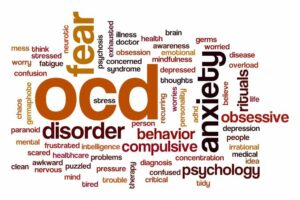 OCD is an anxiety disorder that causes people to experience intrusive, unwanted thoughts (obsessions) and engage in repetitive behaviors (compulsions) to try to relieve their anxiety. OCD affects about two percent of the population and can be very debilitating. Also, OCD is a very misunderstood disorder, which can make it difficult for people to seek help.
OCD is an anxiety disorder that causes people to experience intrusive, unwanted thoughts (obsessions) and engage in repetitive behaviors (compulsions) to try to relieve their anxiety. OCD affects about two percent of the population and can be very debilitating. Also, OCD is a very misunderstood disorder, which can make it difficult for people to seek help.
OCD can be very disabling and can interfere with a person’s ability to work, go to school, and have healthy relationships. OCD is also often accompanied by other mental health disorders such as depression, eating disorders, and substance abuse.
What Are Eating Disorders?
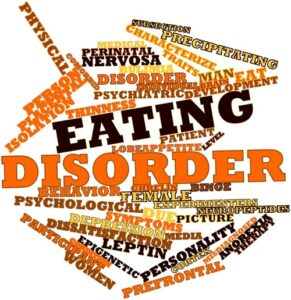 Eating disorders are a group of mental disorders that are characterized by abnormal eating habits and distorted body image. Anorexia nervosa, bulimia nervosa, and binge-eating disorder are the most common types of eating disorders. Eating disorders affect about four percent of the population and can also be very debilitating. Like OCD, eating disorders are also very misunderstood and often go untreated.
Eating disorders are a group of mental disorders that are characterized by abnormal eating habits and distorted body image. Anorexia nervosa, bulimia nervosa, and binge-eating disorder are the most common types of eating disorders. Eating disorders affect about four percent of the population and can also be very debilitating. Like OCD, eating disorders are also very misunderstood and often go untreated.
Eating disorders are also often accompanied by other mental health disorders such as OCD, depression, and anxiety.
Relationship Between OCD And Eating Disorders
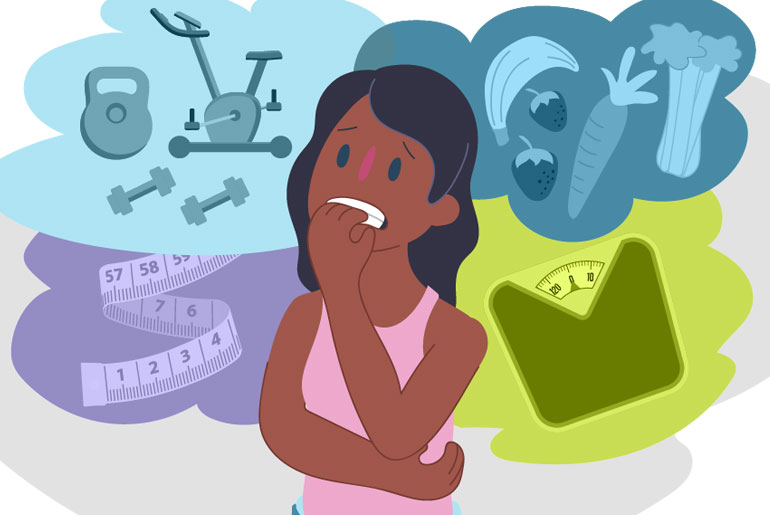
The relationship between OCD and eating disorders is not fully understood, but there are some theories about how the two conditions might be connected.
One theory is that OCD and eating disorders share a common underlying cause. This theory suggests that both conditions are the result of an imbalance in brain chemicals or circuitry. Another theory is that OCD leads to disordered eating behaviors. This can happen when someone with OCD becomes fixated on food or body weight as a way to control their environment.
Also, the relationship between OCD and eating disorders can be bidirectional. This means that having one condition can increase the risk of developing the other. For example, someone with OCD may become so fixated on food and weight that they develop an eating disorder. Or, someone with an eating disorder may start to exhibit OCD-like behaviors in their attempts to control their diet and weight.
Sometimes people may also have co-occurring conditions, such as depression or anxiety. These conditions can complicate the relationship between OCD and eating disorders. They may make one condition worse, or make it more difficult to treat both conditions at the same time.
If you have OCD, it’s important to be aware of the potential for developing an eating disorder. And if you have an eating disorder, it’s important to be aware of the potential for developing OCD. If you have any concerns about your mental health, it’s important to talk to a doctor or mental health professional. They can help you understand your risk factors and develop a treatment plan.
Signs of OCD And Eating Disorders

There are many signs of OCD and eating disorders, which can make it difficult to tell them apart. However, some key differences can help you identify which disorder someone may have.
OCD is characterized by intrusive, unwanted thoughts (obsessions) that lead to compulsions (repetitive behaviors or mental acts that a person feels they must do to “fix” the obsession). People with OCD often realize that their obsessions and compulsions are irrational, but they cannot control them.
Eating disorders are also characterized by obsessions, specifically around food, weight, and body image. However, people with eating disorders do not typically have compulsions. Instead, they may engage in restrictive eating behaviors or purging behaviors such as vomiting or using laxatives.
Some of the signs of OCD and Eating Disorders can be the same as they both involve anxiety and obsessive thoughts. However, some key differences can help you identify which disorder someone may have.
Impacts of OCD And Eating Disorders
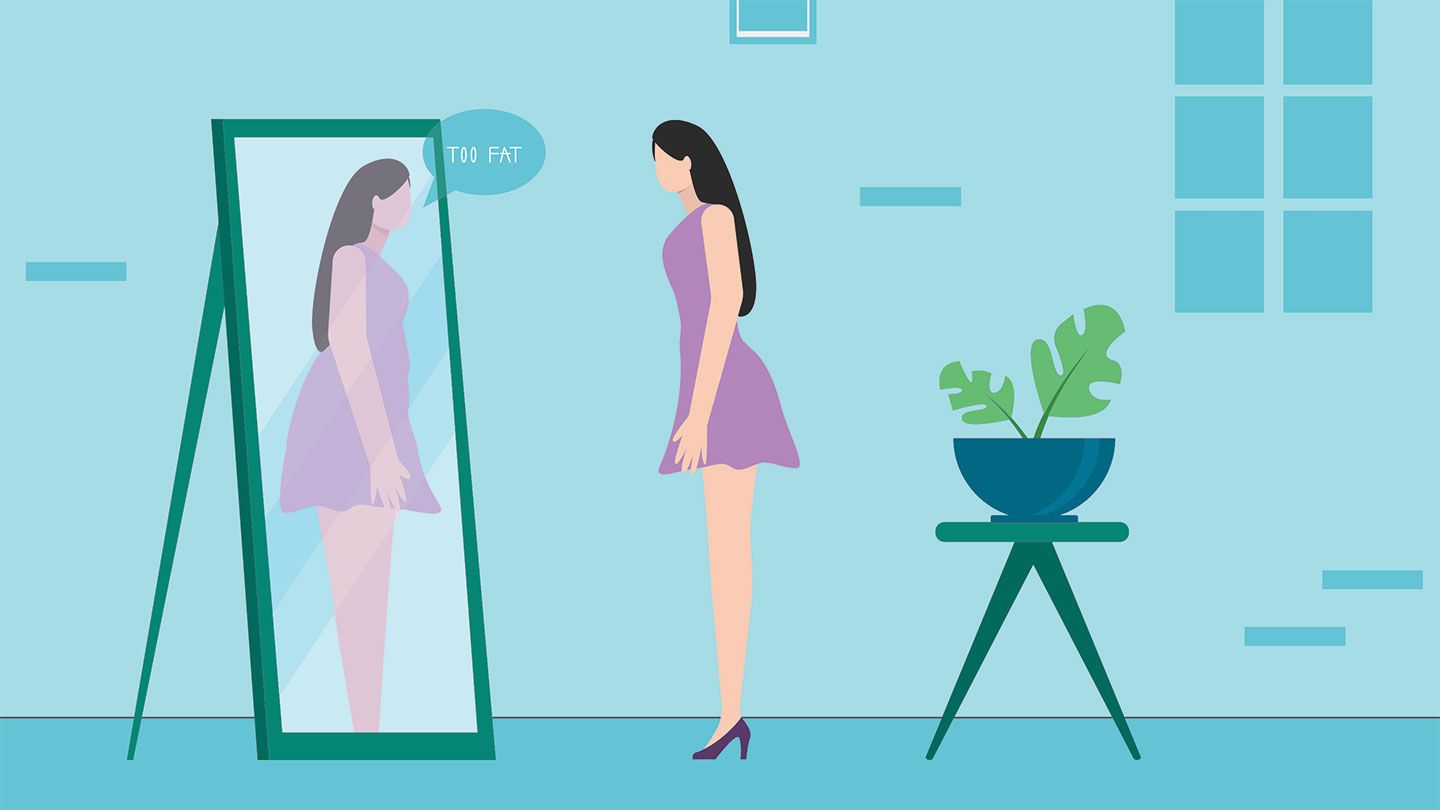
The impacts of OCD and eating disorders can be extremely detrimental to one’s health, both physically and mentally. Individuals with OCD are more likely to develop an eating disorder and vice versa. The two conditions often go hand-in-hand because they both stem from a need for control.
Eating disorders can cause serious health problems, including malnutrition, electrolyte imbalances, heart problems, and even death. OCD can also have very serious consequences. People with OCD often suffer from anxiety and depression, and the condition can interfere with work or school performance. It can also lead to social isolation and relationship problems.
Some of the negative impacts of OCD and eating disorders can be alleviated with treatment. However, both conditions are chronic and tend to wax and wane over time. This means that even people who are in recovery can still experience symptoms and setbacks. Treatment for OCD and eating disorders often includes therapy, medication, and self-care.
These negative impacts are also why it’s so important to seek help if you think you might have OCD or an eating disorder. If left untreated, these conditions can wreak havoc on your life. But with treatment, you can learn to manage your symptoms and live a full and satisfying life.
If you or someone you know is struggling with OCD or an eating disorder, there is help available.
Treatment of OCD And Eating Disorders

Treating OCD and eating disorders often requires a team approach. A combination of medication, therapy, and self-care is usually the most successful treatment plan.
Medications
Medications are one of the most common treatments for mental disorders. They can be very effective, especially when used in conjunction with other forms of treatment, such as therapy.
There are several different types of medications that can be used to treat OCD and eating disorders. The most commonly prescribed medications for these conditions are selective serotonin reuptake inhibitors (SSRIs). SSRIs work by increasing levels of serotonin in the brain. Serotonin is a neurotransmitter that plays a role in mood and anxiety.
Other types of medications that may be used to treat OCD and eating disorders include tricyclic antidepressants, antipsychotics, and benzodiazepines.
Therapy
Another treatment option for OCD and eating disorders is therapy. There are many benefits of using therapy to treat mental disorders. Therapy can help you understand your thoughts and feelings, develop healthy coping skills, and make positive changes in your life.
Several different types of therapy can be used to treat OCD and eating disorders. Some of these are:
Cognitive-Behavioral Therapy
Cogntive-behavioral therapy (CBT) is a type of therapy that focuses on changing negative thoughts and behaviors. CBT is an effective treatment for OCD and eating disorders. CBT works by helping you identify and change the thoughts and behaviors that are contributing to your OCD or eating disorder. The working of CBT is based on the principle that our thoughts and behaviors play a role in our emotions.
Exposure and Response Prevention Therapy
Exposure and response prevention therapy (ERP) is another type of CBT that is often used to treat OCD. ERP works by helping you face your fears and learn to control your reactions to them. This type of therapy can be very effective in treating OCD, but it can also be challenging. There may be many things you’re afraid of, but with the help of a trained therapist, you can slowly and safely face your fears.
Dialectical Behavior Therapy
Dialectical behavior therapy (DBT) is a type of therapy that focuses on helping people manage their emotions. DBT is an effective treatment for eating disorders. DBT works by teaching people skills to deal with their emotions healthily. These skills include mindfulness, distress tolerance, and emotion regulation. Dialectical Behavior Therapy also emphasizes the importance of developing a supportive and positive relationship with a therapist.
Acceptance and Commitment Therapy
Acceptance and commitment therapy (ACT) is a type of therapy that focuses on helping people accept their thoughts and feelings. ACT is an effective treatment for OCD and eating disorders. ACT works by teaching people to accept their thoughts and feelings without trying to change them. This can be a difficult task, but it can help you learn to control your OCD or eating disorder.
Interpersonal Therapy
Interpersonal therapy (IPT) is a type of therapy that focuses on relationships. IPT can help treat eating disorders because it can help you understand how your relationships with others may be affecting your eating habits. IPT can also help you develop healthy coping skills for dealing with difficult emotions and situations.
Self-Care
In addition to medication and therapy, self-care is an important part of treatment for OCD and eating disorders. There are several things you can do to take care of yourself and support your recovery. Some self-care tips include:
Eating a balanced diet and getting regular exercise
Eating a balanced diet and getting regular exercise are important for physical and mental health. Also, Eating a healthy diet can help you maintain a healthy weight, which is important for people with eating disorders. Getting regular exercise can help reduce stress and improve your mood.
Getting enough sleep
Also, Getting enough sleep is important for physical and mental health. It can be difficult to get enough sleep when you’re dealing with a mental disorder. Try to establish a regular sleep schedule and stick to it as much as possible. Avoid caffeine and alcohol before bed, and create a relaxing bedtime routine.
Practicing relaxation techniques
Practicing relaxation techniques can help reduce stress and improve your mood. There are many different relaxation techniques you can try, such as deep breathing, progressive muscle relaxation, or mindfulness meditation. Find one that works best for you and practice it regularly.
Make time for hobbies and activities you enjoy
Making time for hobbies and activities you enjoy is important for your mental health. Doing things you enjoy can help reduce stress, improve your mood, and give you a sense of accomplishment. It’s also important to spend time with people who make you feel good about yourself.
Seeking support from family and friends
Sometimes it’s helpful to talk to someone who understands what you’re going through. Family and friends can be great sources of support. If you don’t feel comfortable talking to them about your OCD or eating disorder, there are many other sources of support available, such as online forums, support groups, and hotlines.
Support Groups
Support groups are a great way to get help and learn from others who are struggling with OCD or eating disorders. There are many different types of support groups available, so it is important to find one that fits your needs. If you are struggling with both OCD and an eating disorder, there may be a group specifically for people in your situation.
There are also online support groups available which can be helpful if you cannot attend a local group. These groups can provide valuable information and support from people who understand what you are going through.
How To Avoid OCD And Eating Disorders?
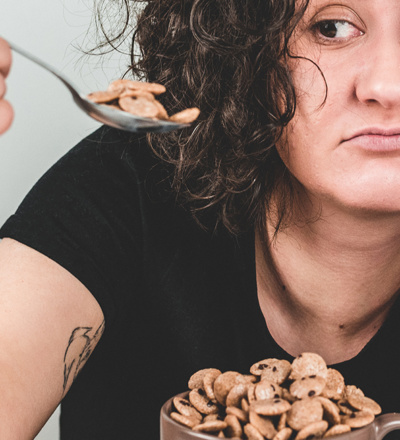
Avoiding OCD and eating disorders can be difficult. They are often comorbid, meaning they occur together. However, there are things you can do to avoid or lessen the severity of these conditions.
There are a few key things you can do to avoid developing OCD or an eating disorder:
-Get regular mental health checkups: This is important for overall mental health, but especially if you have a family history of OCD or eating disorders. Checking in with a professional can help catch any early signs of either condition. There may be many things you are feeling and not aware of the severity.
-Be mindful of your triggers: If you know what situations or thoughts tend to trigger your OCD or disordered eating, avoid them if possible. If you can’t avoid them, have a plan in place to deal with them. This might involve things like distraction techniques or deep breathing exercises.
-Talk to someone: If you are struggling with OCD or an eating disorder, talking to someone can be incredibly helpful. This could be a therapist, doctor, friend, or family member. Talking about what you’re going through can help lessen the symptoms and give you support.
-Make lifestyle changes: Things like eating a balanced diet, getting regular exercise, and getting enough sleep can help reduce the symptoms of OCD and eating disorders. Taking care of your body can help take care of your mind.
-Seek professional help: If you are struggling with OCD or an eating disorder, professional help may be necessary. This could involve therapy, medication, or a combination of both. Don’t be afraid to seek out help if you need it.
OCD and eating disorders can be difficult to deal with, but there are things you can do to lessen the symptoms. Be mindful of your triggers, talk to someone about what you’re going through, and try medication if necessary.
Helping Someone With OCD And Eating Disorders

Helping someone with OCD and an eating disorder can be difficult, but it is possible. Here are some tips:
Be Supportive
Being supportive is one of the most important things you can do. This includes listening to them, believing them, and not judging them. It is also important to be patient with them as they work through their condition.
Educate Yourself
Educating yourself about OCD and eating disorders can help you be more understanding and supportive of the person you are helping. It can also give you ideas of what resources are available and how to best help them.
Encourage Them To Seek Help
If the person you are helping is struggling, encourage them to seek professional help. This could involve therapy, medication, or a combination of both. Don’t try to force them into treatment, but let them know that it is an option if they need it.
Provide Resources
There are many resources available for people with OCD and eating disorders. You can help by providing them with information about these resources. This could include things like support groups, books, or websites.
Be There For Them
One of the most important things you can do is be there for the person you are helping. This includes being a sounding board, offering advice when asked, and just being someone they can talk to. It is also important to respect their privacy and not pry into their personal life if they don’t want to share.
Try these tips to help someone with OCD and an eating disorder. Be supportive, educate yourself, and be there for them. If they need it, encourage them to seek professional help. Provide resources as well.
Conclusion
OCD and eating disorders are often comorbid, which means that they can occur together. If you or someone you know suffers from both conditions, it’s important to seek professional help. While OCD and eating disorders can be difficult to manage, treatment can make a big difference. With the right support, you can learn to cope with your symptoms and live a full and satisfying life.
There are also many resources available to help you understand and manage your OCD and eating disorder. They offer support groups, online resources, and treatment providers. Treatment for OCD and eating disorders can be challenging, but it’s important to remember that recovery is possible. With the right help, you can live a fulfilling life despite your symptoms.
If you or someone you know needs help, don’t hesitate to reach out. Help is available, and there is hope for recovery. Your mental health — Your psychological, emotional, and social well-being — has an impact on every aspect of your life.
Hope this article was of help to you! If you are suffering from OCD and eating disorders, you may seek help from Therapy Mantra. We have a team of highly trained and experienced therapists who can provide you with the tools and skills necessary for overcoming OCD and eating disorders. Contact us today to schedule an online therapy or download our free OCD treatment app on Android or iOS for more information.


